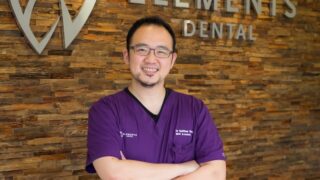Tired of being tired all the time? Here are some signs you might have a sleep problem that needs treating, and where to go to get help for snoring, sleep apnoea, insomnia and other sleep disorders that are taking a toll on your health.
Signs of a sleep problem
From snoring to constant fatigue, plenty of signs point to a sleep disorder, explains sleep therapist JOEL SIMPSON. It’s important to ask yourself:
- Do you or your partner snore?
- Are you waking up tired no matter how long you’ve slept?
- Do you get headaches in the morning?
- Are you wide awake when it’s time to go to sleep?
- Do you wake up with a dry mouth?
- Are you finding yourself getting really sleepy during the day?
- Do you frequently wake up during the night and find it hard to go back to sleep again?
If you answer “yes” to any of the above questions, then read on for some reasons and solutions.

Why is sleep so important?
Many studies point to the negative consequences that poor sleep can have on our health, both physically and mentally. According to Joel, the effects can be short or long-term. He uses an evidence-based approach to treat sleep and breathing issues in both children and adults at City Sleep Clinic, which is part of City Osteopathy and Physiotherapy in Bukit Timah (1 Fifth Avenue, #03-02 Guthrie House). The clinic offers virtual consultations, too.
Getting quality sleep helps our body to recover from the day, and promote the growth of new nerve cells and brain function, explains Joel. “So, making sure you’re getting good and regular sleep should be a top priority. When you’re feeling well rested every day, it becomes easier to tackle life’s other obstacles.”
Common sleep issues
Joel says that the most common issue he sees is sleep disordered breathing, which includes snoring, upper airway resistance syndrome (UARS) and sleep apnoea. The most common type of sleep apnoea is obstructive sleep apnoea (OSA), where breathing repeatedly stops and starts. During sleep, the airway collapses, causing reduced or complete cessation of airflow. This, in turn, causes oxygen levels to drop and chronic sleep deprivation. If untreated, OSA can lead to a number of serious health issues including high blood pressure, stroke and heart disease.
Daytime sleepiness can also increase a person’s risk of having an accident. Often, sleep-deprived individuals don’t even realise that they are fatigued and their performance impaired, says Joel. That’s a scary fact, considering a recent study here in Singapore found that one in three Singaporeans suffers from moderate to severe sleep apnoea.
In addition to sleep apnoea, Joel sees patients for a variety of other sleep disorders, including:
- Insomnia
- Parasomnia (this includes sleepwalking, sleep talking, having sleep terrors, bedwetting and more)
- Restless leg syndrome (to put it another way: legs doing funky things during sleep!)
- Circadian rhythm disorders (when the brain and hormones aren’t working in tandem; patients typically have insomnia, excessive daytime sleepiness, or both)
- Narcolepsy (excessive sleepiness, sleep paralysis, hallucinations)
- Sleep paralysis (a state during waking up or falling asleep in which a person is aware but unable to move or speak)
- Chronic fatigue syndrome (extreme fatigue that doesn’t go away with rest and can’t be explained by an underlying medical condition)
When to see a specialist
“There are many factors that may be impacting the quality of someone’s sleep, from nutrition, to screen time, exercise, natural light, stress and so on. These must be looked at in tandem to any physiological issues before deciding on a treatment plan,” says Joel.
The first step is to get a proper diagnosis of what the sleep issue is and what’s causing it. After understanding a patient’s medical history and going through various sleep screenings, it is often recommended to conduct a sleep study. City Sleep Clinic favours an at-home study to ensure it gets the best representation of a patient’s “normal” sleep.
Surgery (or CPAP) isn’t the only option
When it comes to treatment, Joel says City Sleep Clinic has a very holistic approach to treating sleep issues. Each treatment plan is tailored to the individual, based on what is most appropriate for that person.
“There is a tendency here, across many therapeutic areas, to rush to a quick fix for many health issues that people face. Treating sleep disorders is particularly complex and requires a team-based approach in almost every case. So, we need to first understand what’s happening and which therapies will give us the highest likelihood of success,” he says. “Particularly for kids, we believe we owe it to them to build an appropriate treatment plan before rushing to a particular treatment.”
A chance for better breathing
“Similarly, we are not always limited in options when treating breathing related problems”, says Joel. City Sleep Clinic believes that, in many instances, there are treatments that can provide additional benefits for patients suffering from breathing related disorders.
For someone trying to improve their breathing, there are a number of evidence-based treatments that Joel would recommend, in conjunction with traditional therapies. In the case of asthma, for instance, Inspiratory Muscle Training (IMT) is used to improve shortness of breath. “Although this is certainly not a replacement for vital medications, it provides an added benefit through improving exercise tolerance, breathing pattern dysfunction and shortness of breath.”
Many sleep and breathing issues are multi-faceted. Only by working with the right specialists will the right outcome be achieved. To create these multi-disciplinary plans, City Sleep Clinic works with top medical specialists and healthcare providers across dentists, ENT specialists, neurologists, psychologists, maxillofacial surgeons and GPs.
For more information or to schedule an appointment with City Sleep Clinic, call 6314 4440 or email reception@cityosteophysio.com.
Like this? See our Health & Fitness section:
20 places to walk and hike in Singapore
Health news: What’s up
Don't miss out on the latest events, news and
competitions by signing up to our newsletter!
By signing up, you'll receive our weekly newsletter and offers which you can update or unsubscribe to anytime.




